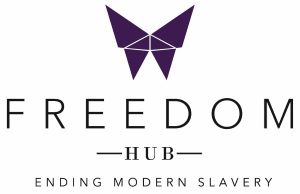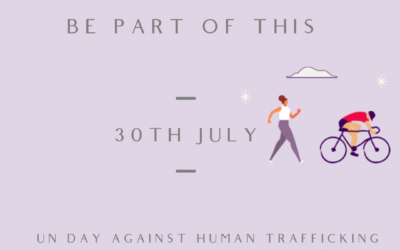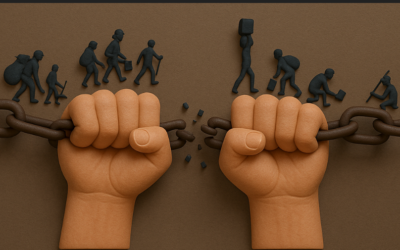“Even before the pandemic, violence against women was one of the most widespread violations of human rights. Since lockdown restrictions, domestic violence has multiplied, spreading across the world in a shadow pandemic.” – Phumzile Mlambo-Ngcuka, the Executive Director of UN Women.
Violence against women and girls has long been a global pandemic and is a national tragedy in Australia.
Before Covid-19, 243 million women and girls worldwide between 15-49 years had experienced sexual and/or physical violence. Usually by a partner in the last 12 months. Last year, 43 women and 16 Australian children were killed. Unfortunately, we cannot know the true effects of this violence, as only 40% of victims actually report their abuse.
Statistics show that an overwhelming percentage of victims are abused by an intimate partner. This abuse affects not only the victims but also their children. Growing up in a violent situation can dramatically affect a child’s capacity to learn, develop relationships and engage in community life.
Violence against Women & Girls in Australia
As outlined in yesterday’s 16 Days article, a Personal Safety Survey conducted by the Australian Bureau of Statistics (ABS) found that since the age of 15:
- 1 in 3 Australian women had experienced physical violence.
- 1 in 4 Australian women had experienced violence by an intimate partner.
- 1 in 5 Australian women had experienced sexual violence.
In addition to the above statistics, the ABS found that:
- Australian women are most likely to experience physical and sexual violence at home, at the hands of a male current or ex-partner.
- Of women who had children in their care when they experienced violence from an ex‑partner, 68 per cent reported that the children had seen or heard the violence.
Post-pandemic statistics
Since the start of this year, 41 women and 43 children in Australia have died due to violence. This is a devastating statistic, outpacing the totals for last year, and in fact, all types of violence against women and girls have increased since the pandemic upended the world nearly 3 years ago. A survey undertaken by the Australian Institute of Criminology found that more than half of the women who had experienced violence before the pandemic said it had worsened since the outbreak. Read more here.
Because of worldwide lockdowns and social distancing orders, many victims are trapped in isolation with their abusers. In addition, because of security, health and money worries, there have been increased rates of violence in the home. Also, they are isolated from people and resources to help them and also have restricted movement.
Worldwide lockdown orders and social distancing means rescue shelters cannot help all who seek help from them. Because of these laws, shelters are reaching full capacity faster than usual, and victims are left with no option but to return to their homes where they are subject to violence. Additionally, the stress and fear of covid created other forms of violence. Xenophobic acts of violence, harassment and online violence are more widespread, and the risk of online sexual abuse is more likely.
Slavery Survivors in The Freedom Hub Survivor School
The women and girls in our care have all experienced severe forms of abuse. Many have experienced extreme violence.
Sometimes slavery starts with a genuine love relationship that gets controlling. Then it becomes abusive. Finally, it becomes servitude as the woman loses all freedoms. She cannot leave the house unaccompanied. She cannot have a phone or a bank account. Friends or any choices of her own are completely taken away. Throughout this series, we will share real stories from survivors who experienced this situation.
We also help girls who have been victims of forced marriage. When she runs, she shames her family and loses all the safety that usually comes with having a loving family and community. Life alone, scared, and risking not being able to complete her education is a brave choice for a young girl who runs from a violent, abusive marriage.
As a part of this series, we ask all women to share these blogs to raise awareness.
Awareness changes culture.
Awareness raises funding for NGOs working in this space.
On Facebook and LinkedIn, please just hit ‘share’. On IG, share this to your story. Let’s bring this crime to light.
If you need help or know of someone in this situation, call us: 1800Freehub (1800 3733482)
ABOUT 16 DAYS OF FREEDOM
Thank you for your part in this 16 Days of Freedom. We cannot change culture without awareness, so please share this post with your friends. Here are the hashtags for your share: #16daysoffreedom #freedomhuborg #womensrights #orangetheworld
16 Days of Freedom is a campaign we are running to align with the UN awareness campaign United Nations’ UNiTE campaign on gender violence against women and girls. We are focussing on women and girls in modern slavery. For 16 days, we will post a story to highlight the issue. To end the 16 days, we invite you to come to or host a Festive High Tea for Human Rights. These will be held on or near UN Human Rights Day on 10th December.
You can join our High Tea for Human Rights in Waterloo, Sydney, by clicking HERE.
You can Host your own High Tea by emailing [email protected], and we will send you information and a fact sheet to read or distribute to your guests.
THANK YOU FOR TAKING THE TIME TO READ OUR BLOG (Please review it or share it with others)




